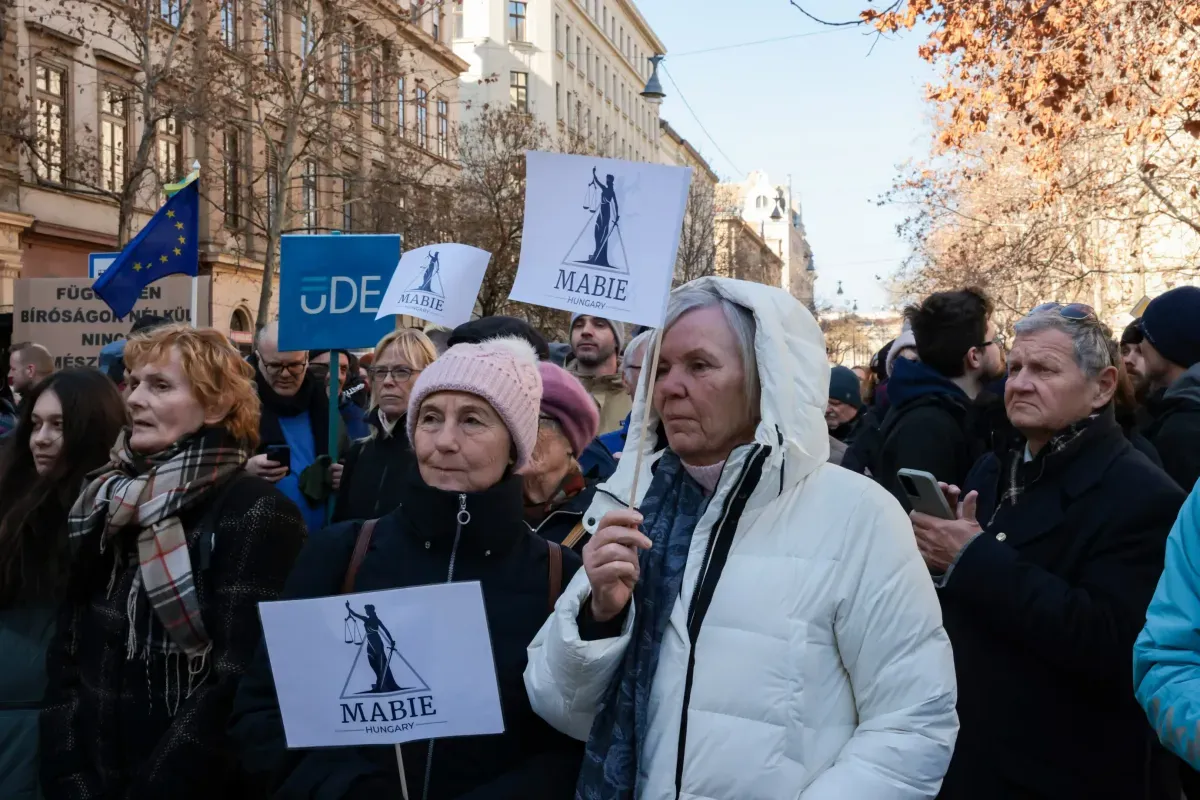Thousands of Hungarian judges protest in Budapest: what angered them
Kyiv • UNN
In Budapest, several thousand judicial employees marched for the independence of the judiciary in Hungary. The protesters opposed the “freezing” of salary increases and demanded guarantees of judicial independence.

In the Hungarian capital Budapest, on Saturday, February 22, several thousand judicial employees and their supporters marched to demand that the independence of the judiciary in the country be guaranteed. This was reported by UNN with reference to Telex.
Details
The protesters opposed the agreement reached by the government with the National Council of Judges of Hungary, which provides for a "freeze" on salary increases for judicial employees.
"Democracy cannot function without free and independent judges. ... Judges' salaries have not changed since last spring, which is contrary to international standards," said Mikael Sjoberg, President of the European Association of Judges.
In her turn , the president of the Hungarian Association of Judges, Katalin Boros, noted that the government's decision could infringe on the rights of judges.
"Judges . can serve society only if the judiciary is properly independent and has adequate living conditions. If independence is shaken, the rights of every citizen may be jeopardized," she said.

Context
This is not the first time that Hungarian judges have held rallies in support of the independence of the judiciary in the country. For example, on December 11 last year, after the agreement between the government and the National Judicial Council was approved, thousands of judges went on protests. They argued that the Hungarian Supreme Court had "sold out" the independence and honor of the judiciary, as it should not have tied the salary increase to the adoption of the planned reforms.
Recall
Hungary opposed the extension of EU sanctions against Russians and Belarusians and the allocation of a 20 billion euro aid package to Ukraine. This was stated by Hungarian Foreign Minister Peter Szijjarto.
Earlier, he said that the European Union again wanted to impose sanctions against the head of the Russian Orthodox Church, Kirill, but Hungary prevented it.